Men Against the Sky

Brief Synopsis
Cast & Crew
Leslie Goodwins
Richard Dix
Kent Taylor
Edmund Lowe
Wendy Barrie
Granville Bates
Film Details
Technical Specs

Synopsis
Phil Mercedes, a once illustrious pilot, forfeits his reputation and his pilot's license because of his fondness for alcohol. Determined to help her brother reform, Phil's sister Kay quits drafting school and comes to live with him. Using an assumed name, Kay wheedles her way into a drafting job at the McLean aircraft factory, where she falls in love with her boss, engineer Martin Ames. McLean is in danger of going bankrupt and thus desperately needs to win a government contract for a new fighter plane. When Martin wrestles with the problems of wing design, Kay presents him with a revolutionary aerodynamic solution that Phil has designed. The plane then undergoes a test flight, and all goes well until test pilot Dick Allerton claims that the wings are unsafe and refuses to perform the last test. Believing that Dick has deliberately sabotaged the test because of his rivalry with Martin over Kay's affections, Phil commandeers the craft to perform his own test. Dick's instincts prove correct, however, when the wings break off during a dive and the plane crashes in a ball of fire. Phil's license is permanently revoked, and the loss of the test model puts McLean in jeopardy of losing his factory until Phil suggests some structural changes to remedy the weakness in the wings. The newly designed craft passes all the tests until the landing gear freezes, imperiling the plane. To save the craft, Phil sacrifices his own life to pry the gear lose, thus winning the contract for McLean and Martin and saving the factory.

Director
Leslie Goodwins
Cast
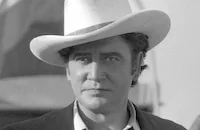
Richard Dix
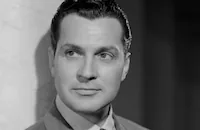
Kent Taylor
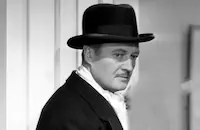
Edmund Lowe

Wendy Barrie
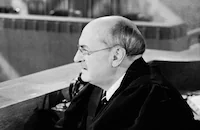
Granville Bates
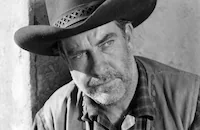
Grant Withers
Donald Briggs
Charles Quigley
Selmer Jackson
Terry Belmont
Jane Woodworth
Adele Pearce

Roy Gordon
Earle Hodgins
Harry Harvey
Chester Tallman
Joe Bordeaux
Ted O'shea
M. G. Mcconnell
Jack Gray

Douglas Spencer
Ray Johnson

Lee Phelps
Thornton Edwards
Paul Everton
Forbes Murray
Jan Buckingham
Helene Millard
Max Wagner
Denis Green
George Lewis
Harry Tyler
Eddie Dunn
John Sheehan
Paul Hurst
Crew
Howard Benedict
Doran Cox
Albert D'agostino
Paul Mantz
Lee Marcus
Desmond Marquette
Van Nest Polglase
Harry Redmond
Renie
Frank Tours
John Twist
Vernon L. Walker
Nathanael West
Earl A. Wolcott

Videos
Movie Clip


Film Details
Technical Specs

Articles
Men Against the Sky
Men Against the Sky belonged to a surefire Hollywood genre, the aviation picture. Filmed in 1940, it represented the peacetime variation on the genre (though the film's emphasis on making planes faster and safer couldn't help but mirror the war currently raging in Europe). Richard Dix stars as a down-on-his-luck flyer whose drinking has ruined his reputation. When he comes up with a new plane design, he can't sell it himself, because nobody wants to work with him. Instead, he gives his ideas to his sister (Wendy Barrie), an aspiring airplane designer, making the ultimate sacrifice when her boss (Edmund Lowe) needs someone to pilot a revised version.
This was old-hat for RKO, which like most studios between the wars churned out a few low-budget airplane films every year. They appear to have had more faith in this particular script, however, as studio executives announced to the trades before production began that they were raising the budget and casting studio up-and-comer Lucille Ball in the lead. Ball went on to other things, however, leaving the female lead to the studio's B-movie queen, Wendy Barrie.
Barrie was a British society girl who had gotten into films on a lark in the early '30s and stayed with them mainly to support her interests in sports, parties and men. Although she had made a few prestige pictures -- most notably the British The Private Life of Henry VIII (1933), with Charles Laughton, and Sam Goldwyn and William Wyler's Dead End (1937), with Joel McCrea, Sylvia Sidney and Humphrey Bogart -- she spent most of her career playing thankless roles in low-budget films. She had signed with RKO in 1938 to bring a little class and publicity value to their B-movie unit. The studio had kept her working -- she co-starred with George Sanders in three films in The Saint series, playing different roles in each, then turned up in two different roles in its follow-up, The Falcon series. But it was off-screen that she really gave the studio what it wanted, dating a string of prominent men who kept her name in the gossip and society columns. Among her Hollywood flings were actors Randolph Scott, Tyrone Power and Brian Aherne; comedian Milton Berle; singer Rudy Vallee; show-biz lawyer Greg Bautzer; and West Coast Mafia head Bugsy Siegal. She even dated RKO's future owner, Howard Hughes. Her publicity helped draw audiences to the studio's many B movies, even though her Variety review for Men Against the Sky offered unusually high praise when it labeled her acting "competent.".
Heading up the cast were two one-time action stars who would end their days in low-budget features. Richard Dix had been a major silent star. In films like Cecil B. DeMille's silent The Ten Commandments (1923) and the Native American drama The Vanishing American (1925), he was Gary Cooper before Gary Cooper came along. He had moved to RKO amidst great hoop-la in the early '30s, even scoring an Oscar® nomination for the studio's epic Western Cimarron in 1931. After that, however, he declined into lower-budget films until his death in 1949.
Like Dix, Edmund Lowe had become a star during the silent days, most notably as the rough-and-tumble Sergeant Quirt in the silent version of What Price Glory? (1926) and two sequels. He then moved into character roles and mostly low-budget films, though he would later be among the international all-star cast of Around the World in Eighty Days (1956).
One of the most interesting names among the credits for Men Against the Sky was screenwriter Nathanael West, author of the critically acclaimed, scandalous 1933 novel Miss Lonelyhearts. Like fellow writers William Faulkner and F. Scott Fitzgerald, he rode his reputation to Hollywood in the '30s, though unlike them he never won any first-rate assignments. Instead, he languished in B movies for four years, rarely making more than $350 a week. At the same time, however, he developed the material for his surrealistic Hollywood novel, The Day of the Locusts. RKO finally raised his salary to $400 a week on the strength of Men Against the Sky's good reviews. He didn't get to enjoy his new success, however. Shortly afterward, he and wife Eileen McKinney West (the subject of the hit play My Sister Eileen) were killed when their car was hit by a train. It wasn't until the '50s that he would win fame as a major American novelist and critics would look back to his B movies for some sign of the mordant wit found in his novels.
Producer: Howard Benedict
Director: Leslie Goodwins
Screenplay: Nathanael West
Based on a story by John Twist
Cinematography: Frank Redman
Art Direction: Van Nest Polglase
Score: Frank Tours, Roy Webb Principal Cast: Richard Dix (Phil Mercedes), Kent Taylor (Martin Ames), Edmund Lowe (Dan McLean), Wendy Barrie (Kay Mercedes), Granville Bates (Burdette), Grant Withers (Grant).
BW-75m.
by Frank Miller

Men Against the Sky
Quotes
Trivia
Notes
A news item in Hollywood Reporter noted that Lucille Ball was slated for the female lead in this picture. A Hollywood Reporter chart lists Robert Wise as editor, but Mr. Wise confirmed that he did not work on this film. Although the Motion Picture Herald review lists Paul Hurst as the bartender, the Call Bureau Cast Service credits John Sheehan with the part. Modern sources state that studio publicity exploited the appearance of Howard Hughes's record-breaking transcontinental aircraft in this picture. This was the last film written by Nathanael West, who died on December 22, 1940.














